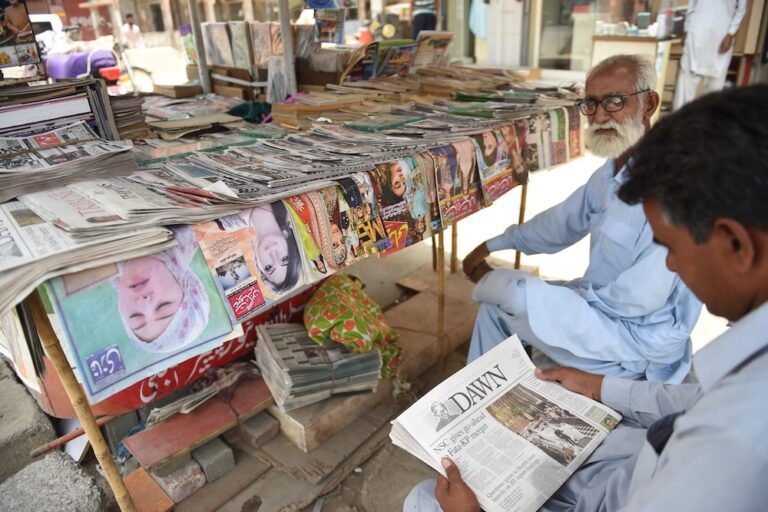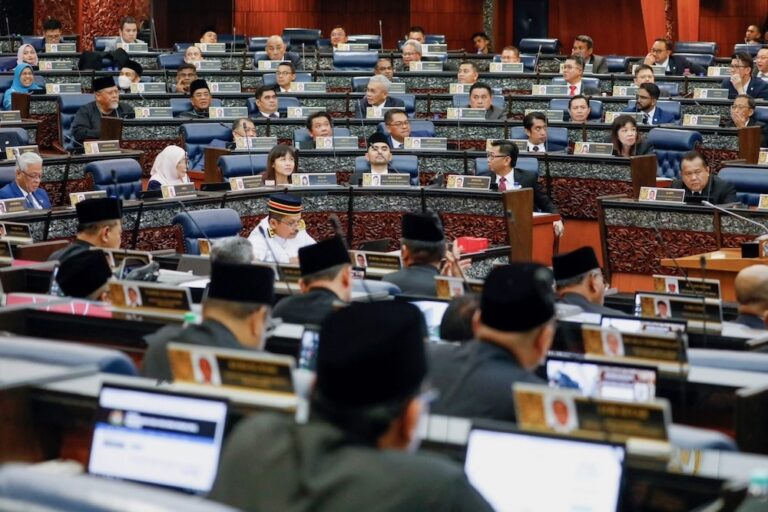
EU: Code of Practice for General Purpose AI should not abandon fundamental rights
Rights groups express concerns to EC over the downgrading of fundamental rights, child sexual abuse material, and non-consensual intimate image abuse risks in the third draft of the EU Code of Practice for General Purpose AI models.

Justice in Ghana, breaking down ATI barriers, and tackling cyber violence across borders
Africa: A free expression and civic space round-up produced by IFEX’s Regional Editor Reyhana Masters, based on IFEX member reports and news from the region

Pakistan: Federal and provincial governments withhold ads to “Dawn” newspaper
Pakistan Press Foundation said authorities wanted to send a message that “fearless and unbiased reporting” will lead to financial ruin for critical media outlets.

UN Submission: The impact of AI-generated disinformation on freedom of expression and access to information
IFEX’s submission to the Human Rights Council Advisory Committee is part of an emerging area of IFEX work on the threats of AI-generated disinformation to freedom of expression and access to information, with ramifications for information integrity, democracy and equality.

Civil society in support of the passing of the Malaysian Media Council bill
Civil society groups reiterated their objection to having government representatives in the board of the proposed Malaysian Media Council.

Uganda encouraged to foster ethical and accountable AI ecosystem
Uganda’s growing use of AI highlights the urgent need for a comprehensive national framework to protect citizens’ digital rights.

Brazil: RSF meets with IACHR rapporteur, calls for action to safeguard diverse, reliable information sources and journalists’ safety
Reporters Without Borders (RSF) called on the Special Rapporteur to urge the Brazilian government to regulate digital platforms, strengthen journalist protection, and promote media pluralism in his upcoming report.

EU members and candidate countries saw 1,548 press freedom violations in 2024
Protests were among the most dangerous environments for journalists in 2024, with 271 press freedom violations recorded. Over 50% of these were physical attacks on journalists, often by state agents.

Safeguarding digital safety and human rights in the Lebanese context
Amid AI-driven shifts in the information landscape, stakeholders at the Lebanese Internet Governance Forum push for modern media laws balancing digital security and free expression.

The art of participatory AI
The director of MISA Regional, Dr Tabani Moyo, endorses the AU’s Afrocentric AI strategy and emphasises the need for cross-disciplinary collaboration to ensure ethical AI development.

The War on Gaza: Digital rights violations and weaponization of AI
7amleh’s report examines how Israel’s digital repression silences Palestinian voices, restricts online spaces, and deepens systemic injustice.

RSF urges Apple to remove its new generative AI feature after it wrongly attributes false information to the BBC, threatening reliable journalism
This accident illustrates that generative AI services are still too immature to produce reliable information for the public, and should not be allowed on the market for such uses.

Australia: Evidence is clear; urgent action needed on AI creative theft
The federal government is urged to implement laws to stop the theft of Australia’s creative and media work by AI developers.

Trump’s election win should prompt Europe to better protect journalists
“Trump’s anti-press rhetoric has already prompted many of his admirers, around the world and in Europe, to retaliate against the media. With Donald J. Trump back in the White House, they will feel even more empowered to harass the press” – EFJ